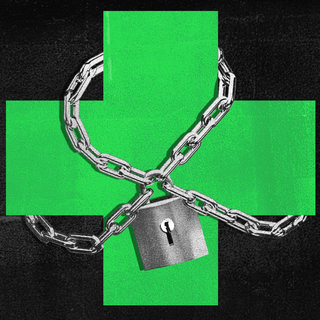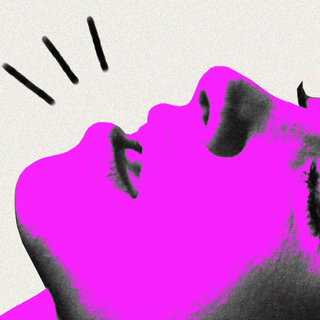When people experience mental illness, it implicates both the head and the heart, according to new research. The link lies in how well our hearts adjust to external stressors. For people with poor mental health, this link is severed which impacts cardiovascular health.
The study, published in BioMedical Engineering Online, is the latest to show the physical effects of mental illnesses. Researchers conducted a review of research on the effects of mental illness on blood pressure and heart rate: “We reviewed 12 studies on people with anxiety, depression, and panic disorders and found that, regardless of age, mental illness is significantly associated with greater blood pressure variations during the day,” Dr. Renly Lim, author of the study, said in a press release.
The association lies in how the heart responds to stress: the ideal is for our heart beat to be flexible and resilient to changes. But when someone suffers from poor mental health, the heart is not able to align with the changes. As a result, faulty blood pressure and heart rate variations arising out of mental illnesses could lead to long-term complications.
Lim explained that a healthy heart doesn’t beat rhythmically like a metronome — contrary to popular expectations. A heart rate is described as the number of times the heart beats per minute; but heart rate variation (HRV) is defined as the time between two heartbeats, which should change in different circumstances. “What we aim for is not a constantly changing heart rate but a high heart rate variation. This is achieved through a healthy diet, exercise, low stress, and good mental health,” Lim added.
A high HRV is desirable because it indicates that the heart is reacting appropriately to external stimuli and psychological stress to withstand them. But people with chronic stress and mental illness, researchers found, have a poor stress response — characterized by low HRV. Low HRV occurs when a person is in fight-or-flight mode, according to Science Daily.
Related on The Swaddle:
Poor Mental Health Linked to Cardiovascular Diseases: Research
Recent research also proposed HRV as a “promising biomarker” of mental health; it was also shown to be a measure of endocrine and immune responses to stress. High HRV was associated with “enhanced cognitive resilience to competitive/self-control challenges, appropriate emotional regulation during emotional tasks, and better modulation of cortisol, cardiovascular and inflammatory responses during psychosocial/mental tasks,” a previous study stated. Through HRV, then, our hearts can tell us where our heads are at.
On the other hand, blood pressure variations (BPV) are ideally supposed to happen at night — with the systolic pressure dropping by 10-20%. But this is not the case in people with poor circadian rhythms or health — making BPV another metric by which to assess somebody’s state of mind.
“Since mental illness can contribute to the deterioration of autonomic function (HRV, BPV), early therapeutic intervention in mental illness may prevent diseases associated with autonomic dysregulation and reduce the likelihood of negative cardiac outcomes,” the paper stated.
The research thus highlights how mental health care is an important facet of cardiovascular health and risk reduction — showing that no two issues are truly ever unrelated, especially where it concerns the head and the heart.




